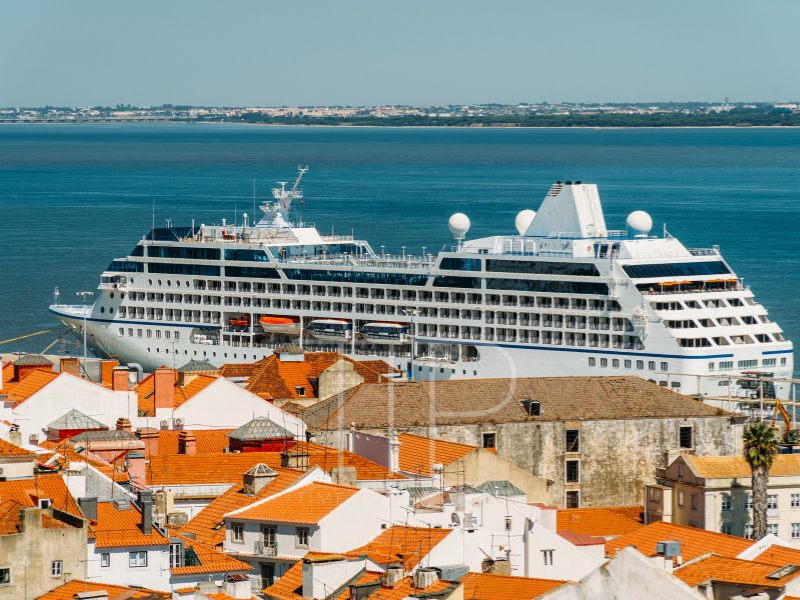The Cruise Lines International Association disagrees with part of the taxes applied in Portugal to the sector, pointing out that they have “no link to environmental performance indicators”, its director for Government and European Affairs told Lusa.
The Cruise Lines International Association disagrees with some of the taxes applied in Portugal to the sector, pointing out that they have “no link to environmental performance indicators”, its director for Government and European Affairs told Lusa.
According to Nikos Mertzanidis, “there are taxes in some places, such as the carbon tax, or the ecotax that applies in the Azores, which are not linked to environmental indicators,” but are simply a tax to be paid by each passenger.
“They count passengers and charge for each one, but without any connection” to these indicators, he pointed out, adding that the amount charged is “so small” that it doesn’t contribute to the goal of decarbonization or zero emissions by 2059, “a goal of the industry”.
Nikos Mertzanidis argued that this issue makes little sense, especially considering “the many millions invested by cruise lines and demanded by the European Union” and the taxes that are already paid at European level in this area.
Even so, he praises the sector in Portugal, highlighting the conditions of the national market, which has a differentiated offer, including ports on the mainland and in the Autonomous Regions.
According to data from CLIA – Cruise Lines International Association, “the cruise lines are investing 58.5 billion euros in 44 ships that will set sail over the next five years, more than 90% of which will be built in Europe”, and this year the association’s members will introduce eight new ships.
Nikos Mertzanidis believes that the crisis generated by the pandemic in the cruise sector is largely behind us. According to CLIA forecasts, worldwide cruise travel is expected to have reached 106% of 2019 levels in 2023, with 31.5 million passengers traveling on cruise ships, and an increase to around 36 million passengers in 2024.
Asked about the frequent criticism of the sector, especially in cities like Venice or Barcelona, the CLIA director said that there have been “many initiatives” in places like Barcelona, in coordination with the local authorities.
Nikos Mertzanidis said that this segment of tourism is focused on management, and it is possible to anticipate how many ships and passengers will be in each destination in plenty of time.
In this way, it is possible to direct these tourists to less visited areas of cities, for example, to try to avoid larger crowds, he said.
Regarding the crisis in the Red Sea, which has complicated the movement of ships, the head of CLIA said only that activities have been “adapted” in the region.

